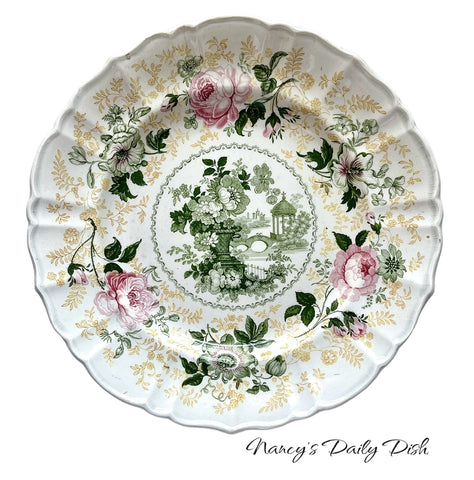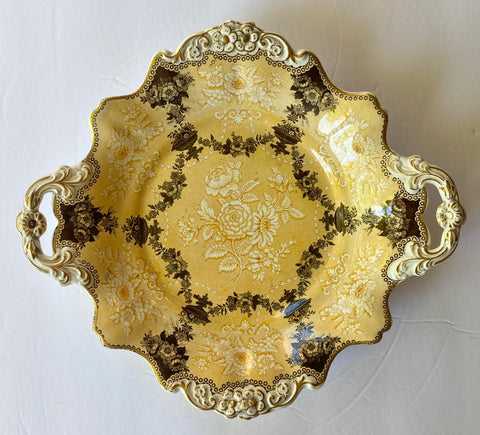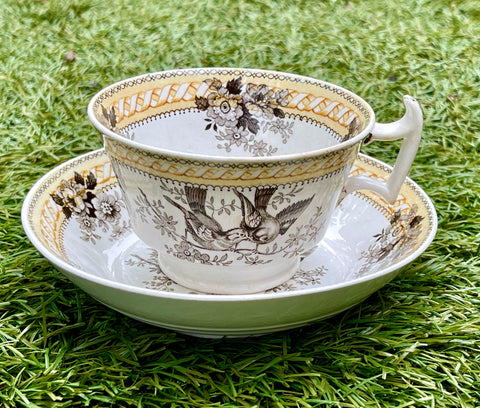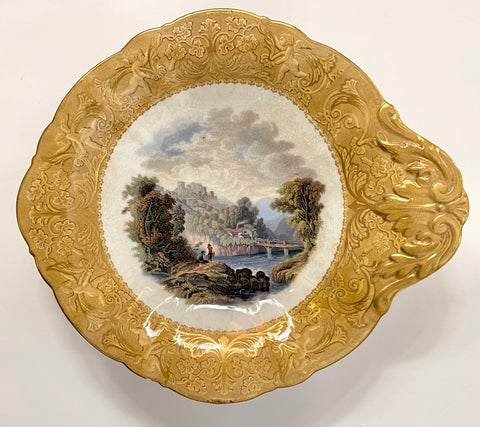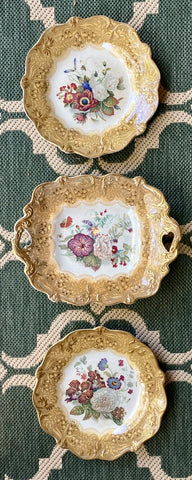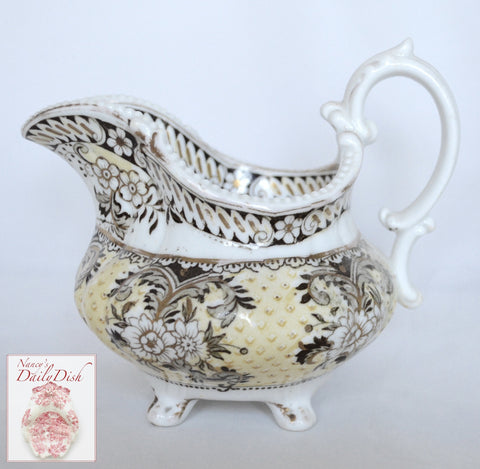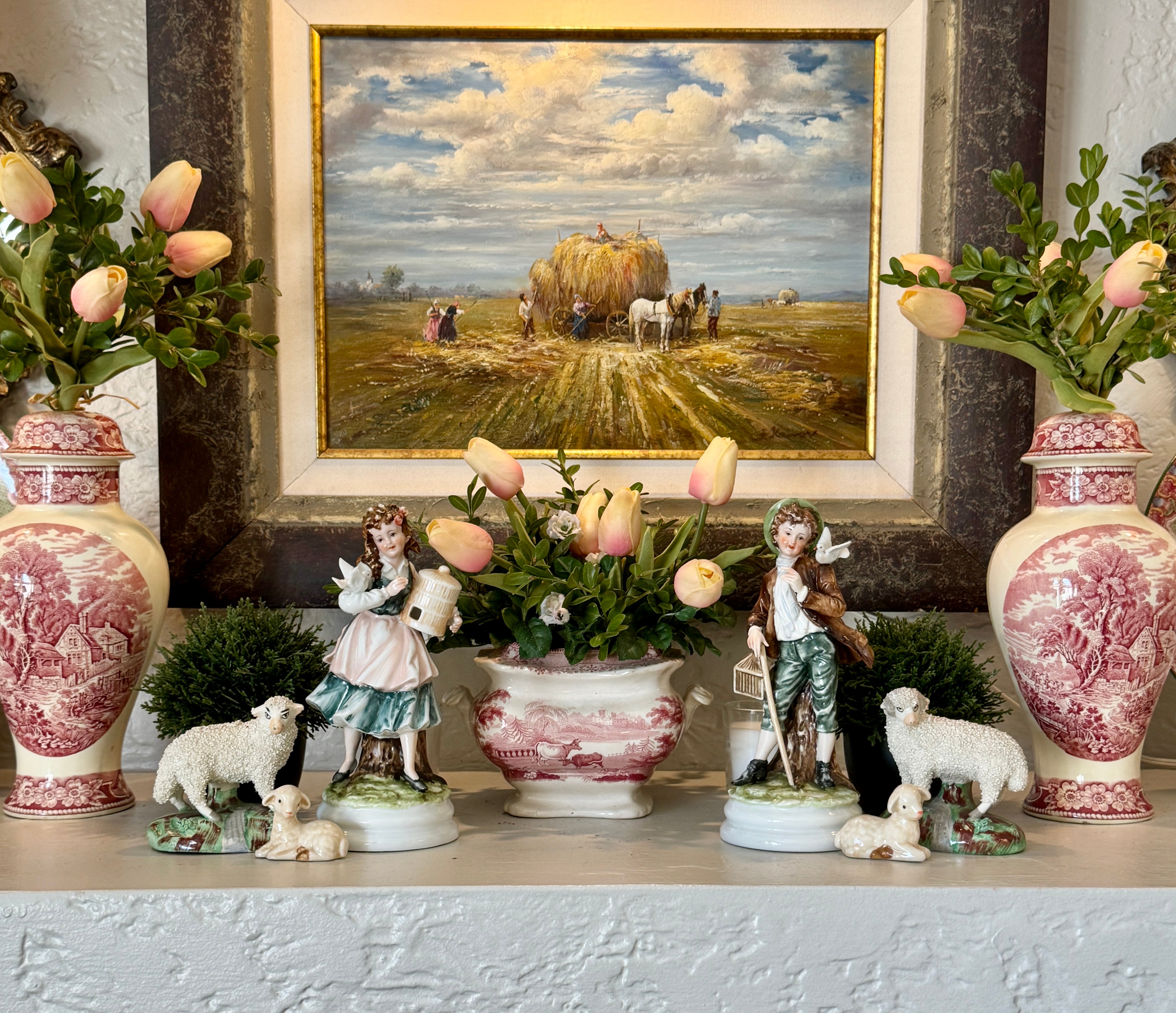RARE Circa 1830 Rare Two Color Brown Yellow Transferware Plate John Ridgway Villa
$299.99
Brand Nancy's Daily Dish
After 1828, technology allowed potters to produce two and three color transfer wares. This truly stunning example dating to the 1830's, by John Ridgway is a very highly sought after piece in the Villa pattern. Yellow is the very rarest color of transferware, and the intricacy in transfer placement on this piece is unsurpassed.
This elaborately detailed plate in John Ridgway's "Villa" is executed in brown transfer and the rarest transfer color, yellow. The "Villa" of the title is the stylish Italianate structure off to the left. To the right is a decorative footbridge which crosses into a elaborate garden area, over a stream that leads the eye to a second villa in the distance. The brown transfer printing is highlighted with a yellow wash. An inner border of scallops and rosettes frames the well of the bowl with cartouches in between depicting a songbird.
A rare and desirable piece for any Transferware collection
Measures appx 9”
Condition: Good. Stilt marks, minor glaze pops (common during production of this time period), light discoloration to the front and more on the back, crazing







